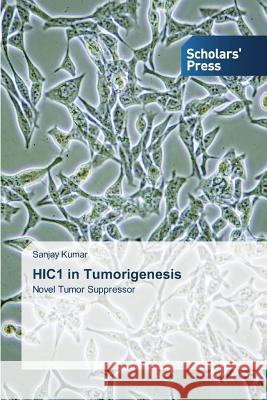HIC1 in Tumorigenesis » książka
HIC1 in Tumorigenesis
ISBN-13: 9783639761306 / Angielski / Miękka / 2015 / 156 str.
A number of genetic alterations shown to be necessary for transformation of normal cell to a cancerous cell. While many of these changes are genetic, epigenetically mediated changes are being increasingly appreciated. Tumor Suppressor Genes reduce the tendency of a cell to undergo malignant transformation. P53 mutation is one of the molecular causes of neoplasm and considered as "gene of conscience". It is found to be inactivated in 60-70% of cancer and in physiological condition the expression of p53 is low (1000-10000) in order to monitor the cellular integrity in mitotically growing cells and has short half life of 30 minutes due to rapid turnover mediated by ubiquitination and proteolysis. P53 is involved in diverse cellular processes including regulation of the cell cycle, apoptosis, senescence, DNA repair, cell differentiation and development. HIC1 is novel tumor suppressor which was discovered in 1995 by Wales et al. HIC1 has potential p53 binding site towards upstream of promoter. HIC1 was found to be ubiquitously expressed in normal adult tissues. HIC1 is proposed to be commonly inactivated in human cancers by hypermethylation of a normally unmethylated dense CpG island.











